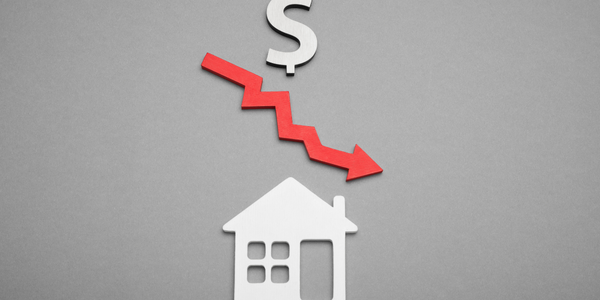
Falling house prices in some parts of New Zealand combined with rising interest rates could see some homeowners in a position of negative equity. As the higher cost of living stretches household budgets further, just how concerned should you be about negative equity? For the answer to this question and others, read on to find out what negative equity is and how it could impact some homeowners in New Zealand.
What is home equity?
Home equity is the difference between the amount you owe the bank for your mortgage and what your home is currently worth. Home equity increases as you pay down your mortgage or if the value of your property improves, either because of home improvements you make or due to market conditions.
If you have enough equity in your property, you may be able to use it to refinance and purchase a new property or an investment property, depending on your financial situation.
What is negative equity?
Negative equity is when the market value of your home reduces to a level lower than the balance you owe the bank for your mortgage. That means if you had to sell your home in the current market, you would end up still owing the bank once your mortgage had been repaid on the sale of your property.
What causes negative equity?
There are a few situations that can lead to negative equity in property, including:
- Buying at the peak of the property market just before the market slows or decreases
- Paying too much over the market value
- Buying a home with a small deposit
- Overcapitalising when renovating
For the first time in several years, New Zealand is experiencing a widespread decrease in house prices. This sharp drop in prices, which follows a period of significant price growth after the pandemic, could see many new homeowners experiencing negative equity.
According to CoreLogic, the nationwide quarterly rate of house price decreases at the end of October 2022 was 4.5 per cent, compared to 4.4 per cent in August 2008 at the peak of the global financial crisis. This may be a concern for homeowners who bought at the top of their budget during the second half of 2021 when house prices reached the highest levels.
What should you do if you are in negative equity?
For most people, being in negative equity doesn’t actually mean much. Provided you are repaying your mortgage and comfortable with staying in your home for the foreseeable future, negative equity is unlikely to impact you in anyway.
Negative equity will only become an issue if you want to borrow more, sell your property, or if you’re unable to meet your mortgage repayments. If you find yourself in any of these situations, it’s important you reach out to your mortgage adviser or lender to discuss your options. And if you do need to sell your home while in negative equity, it’s vital you contact your lender immediately to determine the best way forward.
How can you mitigate negative equity?
The equity in your property will generally improve over time provided you continue to make both principal and interest repayments on your mortgage. If you are able to top up your home loan repayments with any extra cash, such as a bonus or a windfall – and provided your lender allows you to make extra repayments – you may be able to repay enough of your home loan and move out of negative equity.
Other options that could help fix a negative equity situation include renovating the property to improve its value, and increasing the frequency of your home loan repayments to pay down your loan faster.
For more financial advice tailored to your unique situation, get in touch with a Mortgage Express branded mortgage adviser today.



